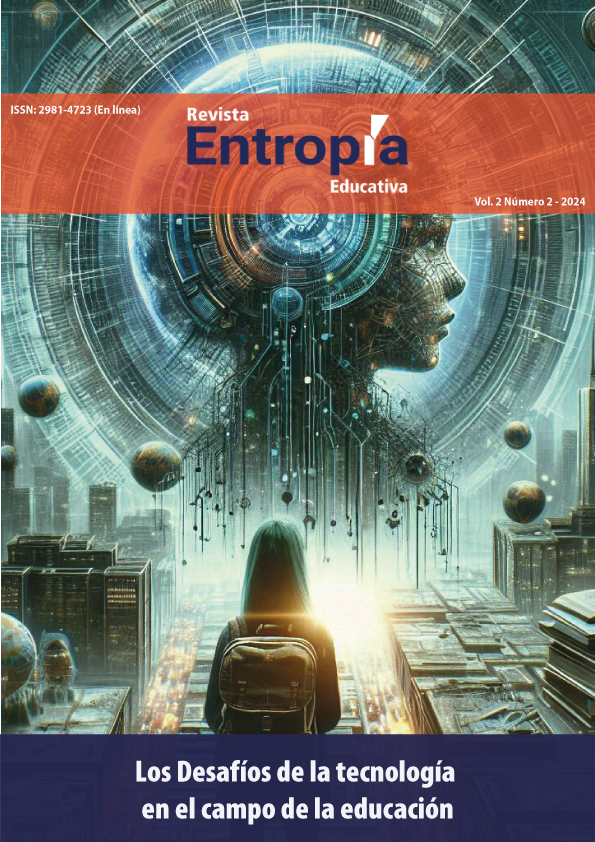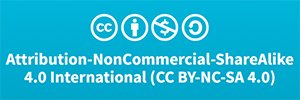
ISSN: 2981-4723 (En línea)

Investigación
Pensar, un proceso diverso e inclusivo Una mirada epistemológica picture_as_pdf
Thinking, a diverse and inclusive process an epistemological look
José Manuel Salum Tome
josesalum@gmail.com
https://orcid.org/0000-0002-2894-5538


Resumen
Contemporary education has taken on the challenge of promoting different programs aimed at promoting inclusive teaching-learning processes that facilitate attention to diversity. It is evident that the integration of students with special needs in regular educational centers has caused significant changes in the curriculum, infrastructure and training among teachers. In the last ten years, educational inclusion has made significant progress, but much remains to be done to expand inclusive spaces.
Palabras clave: Educational Inclusion - Epistemology - Inclusive classroom - Inclusive teacher
Abstract
La educación contemporánea ha asumido el reto de impulsar diferentes programas orientados a promover procesos de enseñanza-aprendizaje inclusivos que faciliten la atención a la diversidad. Es evidente que la integración del alumnado con necesidades especiales en los centros educativos ordinarios ha provocado cambios significativos en el currículo, la infraestructura y la formación del profesorado. En los últimos diez años, la inclusión educativa ha avanzado significativamente, pero aún queda mucho por hacer para ampliar los espacios inclusivos.
keyWords : Inclusión educativa - Epistemología - Aula inclusiva - Docente inclusivo
-
Referencias
-
Barton, L. (2013). Inclusive education and teacher education: A foundation of hope or a discourse of delusion. London: University of London.
-
CONADIS. (2013). National Agenda for Equality in Disabilities. Quito, Ecuador: CONADIS.
-
Constitution of the Republic of Ecuador. (2008, October 20). The Constitution of the Republic of Ecuador Legislative Decree s/n. Montecristi, Manabí, Ecuador: Official Register 449.
-
Escribano, A., & Martínez, A. (2013). Educational Inclusion and Inclusive Teachers. Madrid: Narcea Ediciones.
-
Habermas, J. (1981). Theorie des kommunikativen Handelns (Vol. I). Frankfurt: Suhrkamp.
-
Isch, L. E. (2011). Current proposals and challenges in education: The Ecuadorian case. Educação & Sociedade, Campinas, Brazil, 32(115), 373-391.
-
John, R. C. (2016). Normal School of Specialization Humberto Ramos Lozano. National and International Journal of Inclusive Education, Monterrey, Mexico, 264-275.
-
Ocampo, G. A. (2015). Thesis Epistemology of Inclusive Education. Granada, Spain: University of Granada.
-
Organization of Ibero-American States (OEA). (2014). Advances and challenges of inclusive education in Ibero-America. Buenos Aires: Organization of Ibero-American States.
-
World Health Organization (WHO). (2011). International classification of functioning, disability and health. Geneva, Switzerland.
-
Mardones, J. M., & Ursúa, N. (1982). Philosophy of the human and social sciences. Barcelona: Fontamara.
-
NOMADS. (2007). 27, 62-73. Central University, Colombia.
-
Santos, M. (DNI: 72097495Q). Epistemology in Education.
-
UNESCO. (2008). Inclusive Education, The Way to the Future. Meeting 48 of the International Conference on Education. Retrieved on September 16, 2018, from http://www.ibe.unesco.org/fileadmin/user_upload/Policy_Dialogue/48th_ICE/Press_Kit/Glyer_ICE_Sp.pdf
-

Autor (es)
José Manuel Salum Tome
Profesor de Estado en Artes Plásticas
• Magister en Educación Mención Evaluación
• Magister en Educación Mención Curriculum
• Consultor de la Gestión Escolar de la Fundación Chile
• DEA, Diploma de Estudios Avanzados en Doctorado en Ciencias de la Educación
• Relator Dual para el CPEIP• Tutor Virtual para el CPEIP
• Evaluador de Competencias Laborales, subsector Educación, Chilevalora
• Consultor del área de educación para procesos de selección de Directores yJefes DAEM en la Alta Dirección Pública.
• Doctor en Ciencias de la Educación en Didáctica y Curriculum, Universidad de Aconcagua y Universidad de Chile
• Doctor en Educación de la Universidad Autónoma de Madrid
• Doctor en Educación Internacional en didáctica y teoría de la Educación Universidad Autónoma de Madrid
• PhD en Epistemología,International Lifelong Learning Centro Internacional de Estudios University Avanzados Sypal Ciea-Sypal, 2017
• PhD en Educación y Diversidad Florida Global University, 2020
This work is licensed under Attribution-NonCommercial-ShareAlike 4.0 International
Buscar


Número: Vol. 3 Núm. 4 (2024)
Cita en APA 7
Warning: Undefined array key "paginas" in /home/u907028641/domains/entropiaeducativa.com/public_html/revista/controllers/controllers.php on line 547
Salum, T. José (Junio - diciembre 2024). Pensar, un proceso diverso e inclusivo Una mirada epistemológica. Revista Entropía Educativa. Vol. 2 No. 1 p.
Gramática, enseñanza y (r)evoluciones
Jhon Jairo Tafur Rincón
picture_as_pdf
1795 Lecturas
Pensamiento Crítico en la Era Digital: Desafíos
y Oportunidades para una Epistemología
DigitalRómulo Andrés Gallego Torres
picture_as_pdf
1639 Lecturas
Reflexiones sobre la enseñanza del proceso salud-enfermedadPaola Fernanda Rosalez - Agustín Adúriz-Bravo - Andrea Revel Chion
picture_as_pdf
997 Lecturas
ChatGPT y educación: Una revisión sistemáticaDaniel Pattier
picture_as_pdf
853 Lecturas

